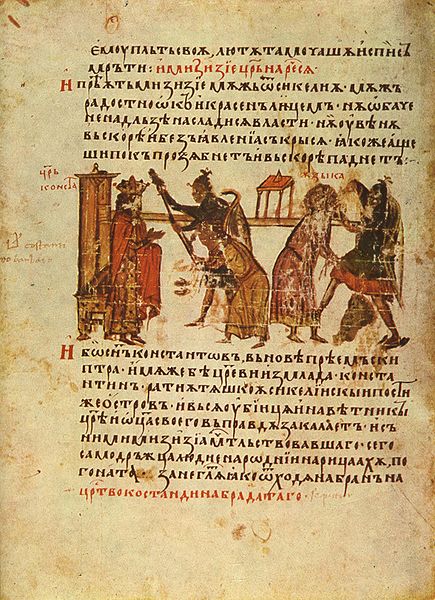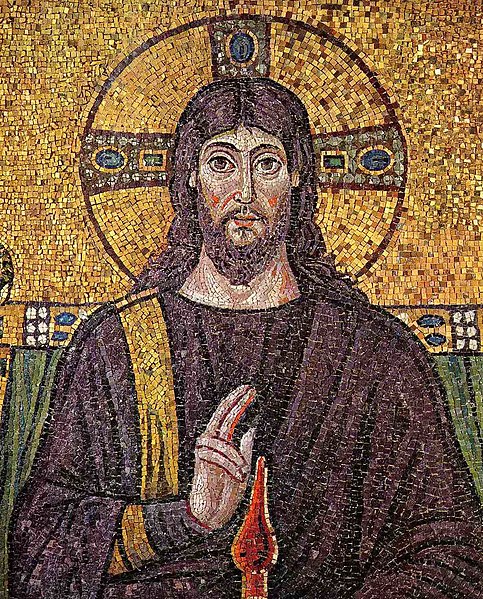Maximus the Confessor, also spelled Maximos, otherwise known as Maximus the Theologian and Maximus of Constantinople, was a Christian monk, theologian, and scholar.
Icon of St. Maximus
A silver hexagramma showing Constans II with his son. Constans II supported Monothelitism, and had Maximus exiled for his refusal to agree to Monothelite teachings.
Constans II (left) having Maximus beaten for refusing to accept Monothelitism. Miniature from the 12th century Manasses Chronicle.
Maximus the Confessor and His Miracles. An early 17th-century Stroganov school icon from Solvychegodsk.
Monothelitism, or monotheletism was a theological doctrine in Christianity that was proposed in the 7th century, but was ultimately rejected by the sixth ecumenical council. It held Christ as having only one will and was thus contrary to dyothelitism, the Christological doctrine accepted by most Christian denominations, which holds Christ as having two wills. Historically, monothelitism was closely related to monoenergism, a theological doctrine that holds Jesus Christ as having only one energy. Both doctrines were at the center of Christological disputes during the 7th century.
The ongoing debates about the nature of Christ caused controversy within the Church for centuries.
Emperor Heraclius, who defeated Persian King Khosrau II in this allegory, had a desire to secure internal harmony within his empire that made him adopt the doctrine of Monothelitism.
Emperor Constantine IV, who convened the Sixth Ecumenical Council in 678.
Pope Honorius I








